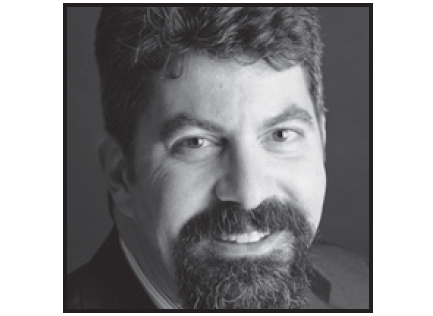Even in the best of times, law firms lacking strong leadership are prone to fall apart
By Paul Paton
LEADERSHIP IS A CHALLENGE in any environment, but leading lawyers is especially tough. Trained to be independent, critical and hyper-analytical, lawyers don't have a reputation for taking direction well. We're inclined by training, and often by nature, to challenge or resist as a reflex. So, as everyone pores over the entrails of Heenan Blaikie LLP in Canada and Dewey & LeBoeuf LLP in the US, how much was leadership a factor? What should the rest of us learn from those cautionary tales?
In an interview published in the Montreal Gazette in February, founding partner Roy Heenan, who stepped down as firm chairman in 2012, was quoted as saying the firm had ended “because of squabbling” and that it was “only in the last year and a half that it turned sour.” Further, he said, “Financially we were doing fine. But everyone felt they should do a little better, or it was the fault of this office or that office. It was that type of clash. It is very sad.”
An analysis in The Globe and Mail concluded that while no “single culprit was to blame for the largest failure of a law firm in Canadian history,” it was leadership – specifically, Heenan's stepping down – that was the firm's death knell: “His hold on the firm was such that partners could never agree on his replacement, creating a leadership vacuum that he and others say resulted in infighting ... and an inability to make the changes many observers say law firms need to make to survive in the 21st century.”
Ian Holloway, Dean of the University of Calgary Faculty of Law, wrote in the Financial Post that the conventional law firm partnership model, not financial failure, was to blame, calling it “a real time parable about the enduring importance of the core value of loyalty to one's colleagues, and the inherent destructiveness of self-centredness.”
Where the Heenan story engenders sadness, the Dewey & LeBoeuf saga spirals in a different direction. In early March, the former chairman, former executive director and former chief financial officer were accused of “concocting and overseeing a massive effort to cook the books” in a 106-count, 60-page indictment that came two years after Dewey – formed by the 2007 merger of two of the most prestigious New York law firms – collapsed in what The New York Times labelled the “largest law firm bankruptcy ever.”
The allegations against the firm's former leaders include grand larceny, conspiracy, scheme to defraud, falsifying securities records and securities fraud. Criminal indictments and SEC complaints rely on various emails between the leaders as evidence of how they allegedly orchestrated efforts to hide the firm's true financial position both to satisfy loan conditions and in the context of a 2010 private debt offering. One June 2009 exchange allegedly included the following: “Can you find another clueless auditor for next year?” “That's the plan. Worked perfect this year.”
Defence counsel for the accused have denied that any laws were broken, chastise the District Attorney's office for how it “spins some inartful emails into crimes” and claim their clients acted in good faith to make the firm a success. The New York Times quoted the lawyer for the chief financial officer as saying “despite what the District Attorney's office apparently believes, the public does not need a scapegoat every time a financial disaster is reported in the media.”
Maybe Canadian astronaut Chris Hadfield has it right when he writes in his recent autobiography, An Astronaut's Guide to Life on Earth, “Ultimately, leadership is not about glorious crowning acts. It's about keeping your team focused on a goal and motivated to do their best to achieve it, especially when the stakes are high and the consequences really matter. It is about laying the groundwork for others' success, and then standing back and letting them shine.” As others try to learn from – and avoid – what befell both of these law firms, that's at least a place to start.
Paul Paton is a professor at the University of the Pacific's McGeorge School of Law and incoming dean of the University of Alberta's Faculty of Law. [email protected]
By Paul Paton
LEADERSHIP IS A CHALLENGE in any environment, but leading lawyers is especially tough. Trained to be independent, critical and hyper-analytical, lawyers don't have a reputation for taking direction well. We're inclined by training, and often by nature, to challenge or resist as a reflex. So, as everyone pores over the entrails of Heenan Blaikie LLP in Canada and Dewey & LeBoeuf LLP in the US, how much was leadership a factor? What should the rest of us learn from those cautionary tales?
In an interview published in the Montreal Gazette in February, founding partner Roy Heenan, who stepped down as firm chairman in 2012, was quoted as saying the firm had ended “because of squabbling” and that it was “only in the last year and a half that it turned sour.” Further, he said, “Financially we were doing fine. But everyone felt they should do a little better, or it was the fault of this office or that office. It was that type of clash. It is very sad.”
An analysis in The Globe and Mail concluded that while no “single culprit was to blame for the largest failure of a law firm in Canadian history,” it was leadership – specifically, Heenan's stepping down – that was the firm's death knell: “His hold on the firm was such that partners could never agree on his replacement, creating a leadership vacuum that he and others say resulted in infighting ... and an inability to make the changes many observers say law firms need to make to survive in the 21st century.”
Ian Holloway, Dean of the University of Calgary Faculty of Law, wrote in the Financial Post that the conventional law firm partnership model, not financial failure, was to blame, calling it “a real time parable about the enduring importance of the core value of loyalty to one's colleagues, and the inherent destructiveness of self-centredness.”
Where the Heenan story engenders sadness, the Dewey & LeBoeuf saga spirals in a different direction. In early March, the former chairman, former executive director and former chief financial officer were accused of “concocting and overseeing a massive effort to cook the books” in a 106-count, 60-page indictment that came two years after Dewey – formed by the 2007 merger of two of the most prestigious New York law firms – collapsed in what The New York Times labelled the “largest law firm bankruptcy ever.”
The allegations against the firm's former leaders include grand larceny, conspiracy, scheme to defraud, falsifying securities records and securities fraud. Criminal indictments and SEC complaints rely on various emails between the leaders as evidence of how they allegedly orchestrated efforts to hide the firm's true financial position both to satisfy loan conditions and in the context of a 2010 private debt offering. One June 2009 exchange allegedly included the following: “Can you find another clueless auditor for next year?” “That's the plan. Worked perfect this year.”
Defence counsel for the accused have denied that any laws were broken, chastise the District Attorney's office for how it “spins some inartful emails into crimes” and claim their clients acted in good faith to make the firm a success. The New York Times quoted the lawyer for the chief financial officer as saying “despite what the District Attorney's office apparently believes, the public does not need a scapegoat every time a financial disaster is reported in the media.”
Maybe Canadian astronaut Chris Hadfield has it right when he writes in his recent autobiography, An Astronaut's Guide to Life on Earth, “Ultimately, leadership is not about glorious crowning acts. It's about keeping your team focused on a goal and motivated to do their best to achieve it, especially when the stakes are high and the consequences really matter. It is about laying the groundwork for others' success, and then standing back and letting them shine.” As others try to learn from – and avoid – what befell both of these law firms, that's at least a place to start.
Paul Paton is a professor at the University of the Pacific's McGeorge School of Law and incoming dean of the University of Alberta's Faculty of Law. [email protected]





